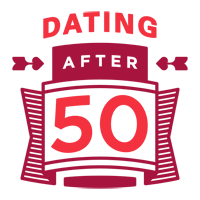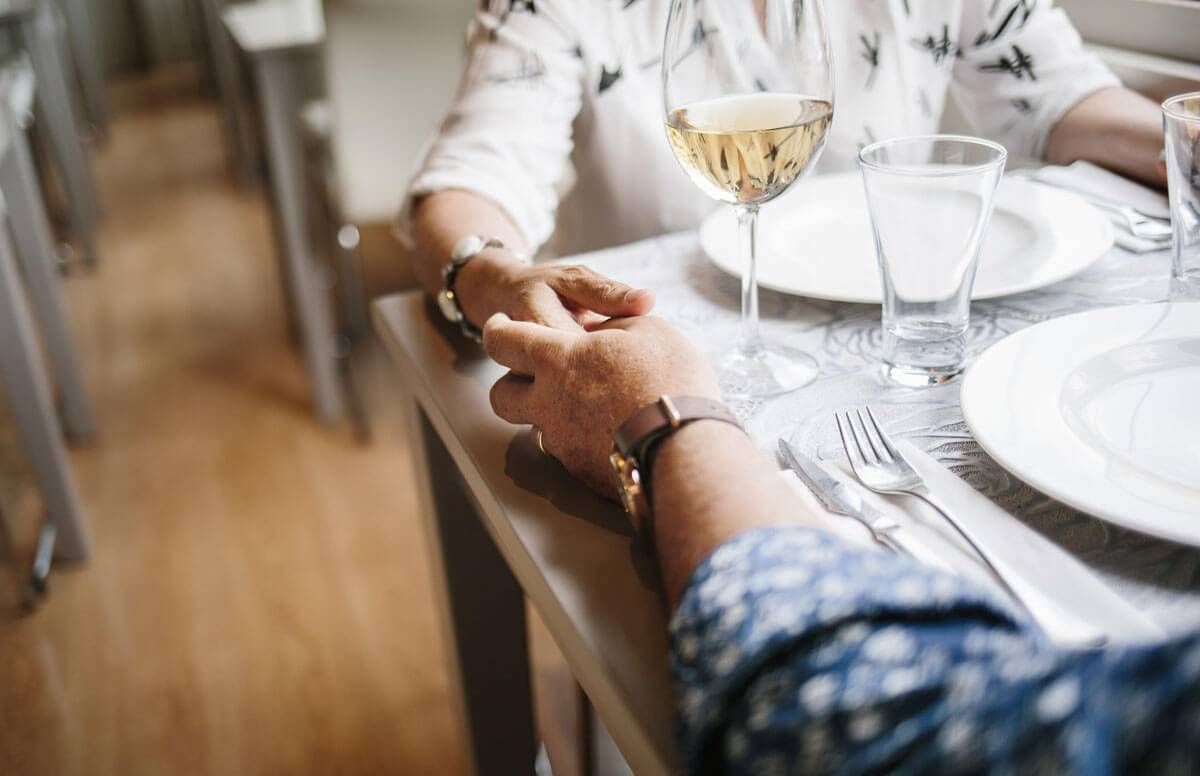Dating After Cancer: How Men and Women Navigate a New Reality
Surgery and chemo leave survivors changed, which doesn’t mean dating is off the table

When Joy Leather, 56, of Waco, Texas, was diagnosed with breast cancer, finding a new boyfriend was not top of mind for the single mom. In addition to having cancer, she was also weighed down with grief. Her oldest brother, an aunt and her stepfather all died in the months before and after her diagnosis and subsequent surgery. “It was just one thing after another, but I kept getting up,” Leather says. “I dusted myself off, pulled up my big girl panties and was going about my business.”

That didn’t mean, of course, that she felt great while doing it. “My cancer was the hormone receptive one, so they gave me the medication that was shutting down all my hormones," Leather says. "That causes joint pain, fatigue and all kinds of lovely things.”
So, it’s understandable Leather didn’t feel like getting dressed up to do errands the day before Thanksgiving. “I was at Walmart and I looked like hammered crap. I was wearing sweatpants, I had on a baggy shirt, no makeup. My hair looked like crap,” she says. “He still asked me out, so I thought, okay then.”
“He” was Mark, the father of one of her daughter’s friends, who has become not only Leather’s boyfriend but a profoundly understanding support system, having lost his wife to cancer several years ago.
"Once they begin to come to terms with what they've been through, then I really encourage people to date."
“I'm real self-conscious with my scars, and he said, some of those scars are just part of being a woman and the other ones, I just kiss those scars and go on. So yeah, he has been very, very supportive,” she says.
Though Leather might have let embarrassment or fatigue send her skulking into another aisle to avoid Mark, she’s glad she didn’t.
“I have come to learn life can change and be gone in a split second. Getting out in the dating scene is a scary thought no matter what, but you're not going to know unless you try," she says.
Dating After Cancer: A Daunting Challenge
Yet many single men and women shut down their dating site profiles after cancer and its complications, which can range from body-altering surgery to incontinence and even pain during sex. Add the challenges of dating in midlife, and daunting doesn’t even begin to describe it.
“I think dating in your forties is hard and dating in your fifties is really hard, and that has nothing to do with cancer,” admits cancer survivor Niki Haworth, 54, who lives in Los Angeles.
But even if most people diagnosed with cancer don’t want to put “cancer survivor” on their Tinder profile, that status is hardly rare. These days, 15% of middle-aged cancer survivors identify as single. On the bright side, one study also found cancer survivors are no less likely to find a date than people who have never had cancer.
When to Tell
Dating, of course, isn’t so simple after a life-altering illness. The timing of when to bring up the issue of cancer with a new person is never easy. Psychologist Pamela J. Ginsberg, of Doylestown, Pa., says “early is better” so the simple truth doesn’t feel like a shameful secret.
But not everyone with cancer wants to dig into the topic on the first date. “You go on a date and the last five minutes are so stressful,” says cancer survivor Laura Brashier, 57, of Rancho Santa Margarita, Calif. “Is he going to kiss me? Should I tell him?”
It’s a common enough conundrum that Brashier and Darryl Mitteldorf, who lives in New York City, independently created dating websites that take the big reveal out of the conversation: RomanceOnly and CancerMatch, respectively.
While Brashier’s site is for anyone who identifies as Sex-C (sex-challenged), not just cancer survivors, it was one way for her to help others who share her cancer complication — an inability to have sexual intercourse without extreme pain.
“I didn't tell anybody for three years that [sexual intercourse] was never going to happen. But you're embarrassed. Is anyone going to want me? It was just awful,” Brashier says.
Mittledorf says that fellow cancer survivors are more likely to be empathetic, especially if symptoms like nausea or fatigue are still in the mix. He adds that many men seek dates with friends of friends “in the hope that somebody told that person that they have cancer so there’s an ease in constructing a relationship. It's easier to date somebody who has a hint of what you're going through,” he says.
Everything Is Different Now
Some cancers, for both men and women, present particular dating difficulties, even for people who stick to a cancer-survivor dating pool.
“What we hear over and over again is that breast cancer impacts your sense of self-esteem, your body image, but also your sexuality,” says Jean Sachs, CEO of Living Beyond Breast Cancer, a national nonprofit based in Bala Cynwyd, Pa. “Add that you're in menopause, and it adds another level.”
Prostate cancer presents significant hurdles of its own to intimacy. “You would think the inability to obtain an erection would be the major stumbling block in dating for men with prostate cancer, but we’ve found it is urinary incontinence,” says Mitteldorf. “Imagine going on a date and your pants are wet or you're unable to control urine when you're trying to be intimate. That actually is a big problem.”
Ginsberg suggests that when you have cancer, worrying about dating is secondary to self-acceptance. “I would tell people to take their time, to recognize that they first need to come to terms and have a sense of peace about what they’ve been through,” she says. “And that is a process that takes time for people, with or without therapy. What has happened to them, it's a big deal. This is not small potatoes.”
Getting Over the Hump and Dating Again
But that doesn’t mean Ginsberg doesn’t recommend dating.
“Once they begin to come to terms with what they've been through, then I really encourage people to date," she says. "It’s a certain hump that people need to get over. And I think even if they meet somebody who isn't necessarily a match for them, but they had either a neutral or decent experience, then that helps.”
Even if they don’t find love connections, the silver lining for dating in midlife is that no matter what, your big reveal probably isn’t the only one coming.
“I think at age fifty-five, we're all bringing baggage, right?” says Sachs. “The hope would be whoever you're dating, a man or a woman, would potentially have some life history as well."
Ultimately, whatever that life history is, the right person won’t be derailed by it.
“I think for the good ones that are still out there, cancer is not going to matter,” says Haworth. She thinks people surviving cancer should remember they’ve already been through a formidable trial, so no date should be intimidating. Advises Haworth: “Be honest, be yourself. You’re still the same person, you know?”

